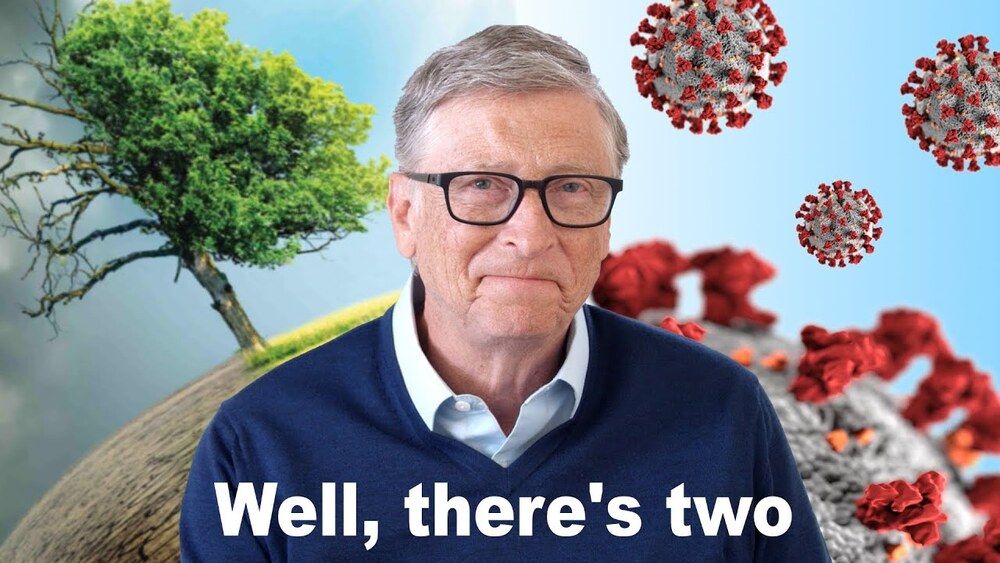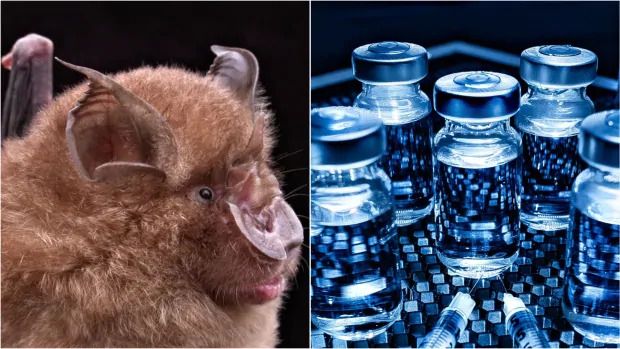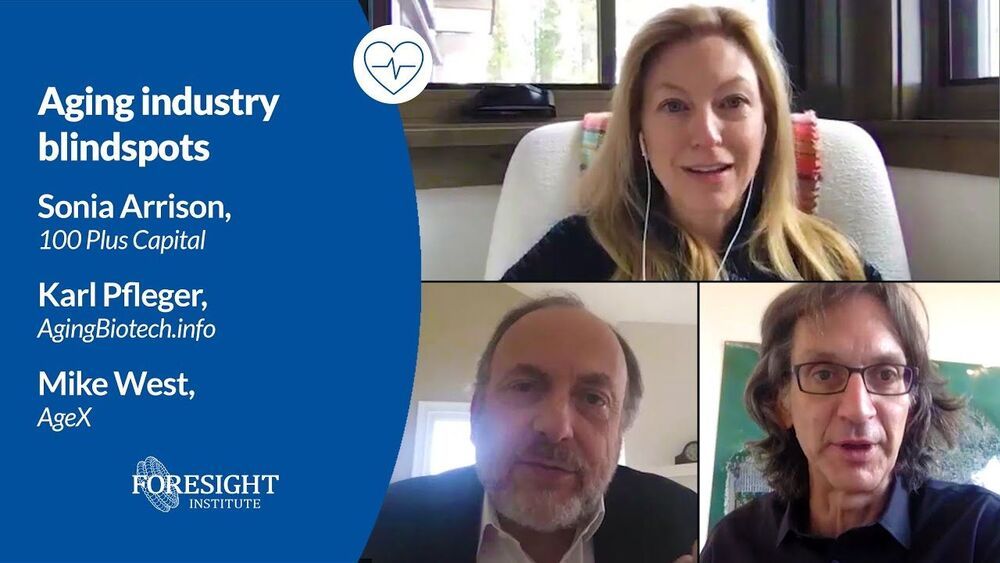In a recent interview, he said the next big disasters facing humanity are climate change and bioterrorism.
Gates was asked about the next crises the world may have to confront.

In a recent interview, he said the next big disasters facing humanity are climate change and bioterrorism.
Gates was asked about the next crises the world may have to confront.

Julian Huxley was part of the intellectual dynasty started by TH Huxley, and is more influenced by Buddhist ideas than Judeo-Christian. “T. H. Huxley was a paleontologist with a medical background who gained great prominence in the nineteenth century as one of the foremost defenders of Darwin’s evolutionary theory. Victorians were often inclined to see him as “the living embodiment of science militant,”(8) for Huxley actually clashed with contemporary defenders of Biblical supernaturalism in the name of science.(9) A very late product of his intellectual career, Evolution and Ethics (1893) shows him in a mellowed, reflective mood. The radical disjunction between the ethical and the cosmic processes such as is frequently highlighted here hardly squares with “orthodox” Darwinism; in fact Irvine has called Huxley’s effort in this context a “somewhat puzzling manoeuvre” that is “full of talk about Indian mysticism and of protest about the cruelties of evolution.”(10) Yet his overall treatment of his theme is not a matter that need concern us now.(11) What must be noted, on the other hand, is that in the course of his professed endeavor to inquire into the origin and the basis of ethical values from an evolutionary standpoint, Huxley indeed undertook a brief survey of the leading philosophies that had helped to form mankind’s conceptions of such values. He emphasized in this connection that India had engendered a distinctive outlook on life, and some of the ideas central to that outlook (as, for example, karman) actually made a notable impression on him. But it is upon a particular religion of Indian origin, namely Buddhism, that he chose to dwell at length and, I think, in a way that merits close attention.” Buddhism is” system which knows no God in the Western sense; which denies a soul to man; which counts the belief in immortality a blunder and hope of it a sin; which refuses any efficacy to prayer and sacrifice; which bids men look to nothing but their own efforts for salvation; which in its original purity, knew nothing of vows of obedience, abhorred intolerance, and never sought the aid of the secular arm; yet spread over a considerable moiety of the Old World with marvellous rapidity, and is still, with whatever base admixure of foreign superstitions, the dominant creed of a large fraction of mankind.”
A note on a Victorian evaluation and its “comparativist dimension” By Vijitha Rajapakse Philosophy East and West Volume 35, no. 3 (July 1985)
©by the University of Hawaii Press
British perceptions of Buddhism tended to be surprisingly vague during the early part of the nineteenth century. Even so reputed an “authority” on India at the time as James Mill, for example, does not appear to have known anything definite on the subject; his famous The History of British India (1818) incorporates some lengthy commentaries on India’s cultural and intellectual achievements, but save for a bare reference, Buddhism, significantly, escaped his consideration. Evidently, James Mill, to all intents and purposes, viewed India as home to a single indigenous religion, Hinduism.(1) These perceptions, however, changed in due course, thanks to the advance of Oriental scholarship, especially Western research on Buddhist textual sources.

Although some researchers are reluctant to share genome data, the field is generally viewed as generous compared with other disciplines. Still, the repositories meant to foster sharing often present barriers to those uploading and downloading data. Researchers tell tales of spending months or years tracking down data sets, only to find dead ends or unusable files. And journal editors and funding agencies struggle to monitor whether scientists are sticking to their agreements.
Data sharing was a core principle that led to the success of the Human Genome Project 20 years ago. Now scientists are struggling to keep information free.

UK-based BenevolentAI has dosed the first patient in its first-in-human clinical trial of its novel multi-target drug, BEN-2293, for treating atopic dermatitis (AD).
Designed and developed using BenevolentAI’s scientific and technical expertise, BEN-2293 is a potent and selective small-molecule Pan-Trk antagonist formulated for topical delivery.
BenevolentAI has dosed the first patient in its clinical trial of its novel multi-target drug, BEN-2293, for treating atopic dermatitis (AD).

With nine vaccines now showing they can powerfully prevent severe illness and death from #COVID19—and vaccines in short supply—researchers are mulling an issue that, even a few months ago, was only hypothetical: Should people mix and match vaccines that require two shots?
Scarce vaccine supplies ramp up interest in combining different doses.

An Israeli drug that has been successful in initial trials, could hold a key in blunting the COVID-19 pandemic. Thirty patients in serious condition participated in the trial and all recovered, most of them in less than a week. Sonya Cohen was one of them and she could one day be seen as a walking #miracle.
Follow Jerusalem Dateline and download the CBN News app to ensure you keep receiving news from a Christian Perspective. go.cbn.com/cbnapp.
#covidcure #Israel #Israeli #innovation #fightcovid #breakthrough.
Ichilov Hospital, Tel Aviv

Many researchers are already working on developing vaccines for the next pandemic, even though they don’t know what it will be. (Craig Chivers/CBC.
When the next coronavirus pandemic hits, scientists plan to already have a vaccine against it, no matter what it is. But how is that possible? Here’s what they’re doing now to develop vaccines against emerging viruses and future variants of COVID-19.

Popular energy drinks may give you a boost, but they may also contribute to possible serious heart conditions, findings show.
A team of researchers, led by a Texas A&M University professor, has found that some energy drinks have adverse effects on the muscle cells of the heart.
The study, led by Dr. Ivan Rusyn, a professor in the Veterinary Integrative Biosciences (VIBS) Department at the Texas A&M College of Veterinary Medicine & Biomedical Sciences (CVMBS), was published in Food and Chemical Toxicology. In it, researchers observed cardiomyocytes – human heart cells grown in a laboratory – exposed to some energy drinks showed an increased beat rate and other factors affecting cardiac function.

57:03 “A tool that would be used for millenia.”
Foresight biotech & health extension group sponsored by 100 plus capital.
Accelerator applications are open now: https://foresight.org/biotech-health-extension-program.
Industry blindspots: Unincentivized work that could dramatically advance progress on aging.
SONIA ARRISON, 100 Plus Capital.
Sonia Arrison is a best-selling author, analyst, entrepreneur, and investor. She is the founder of 100 Plus Capital, co-founder of Unsugarcoat Media (acquired by Medium), and associate founder and advisor to Singularity University in Mountain View, California. Her research focuses on exponentially growing technologies and their impact on society. Her most recent book, 100 Plus: How the Coming Guests Age of Longevity Will Change Everything, From Careers and Relationships to Family and Faith, addresses the social, economic, and cultural impacts of radical human longevity. It gained national bestseller status and keeps Sonia busy speaking all over the world. Sonia is a Board Member at the Thiel Foundation, Foresight Institute, and Woodland School. She is also a Senior Fellow at the Fraser Institute in Vancouver, British Columbia, and author of two previous books (Western Visions and Digital Dialog). She was previously a Director and Senior Fellow in Tech Studies at the Pacific Research Institute and a columnist at TechNewsWorld.
KARL PFLEGER, Agingbiotech.info.
Karl Pfleger, PhD (Stanford CS, Machine Learning) now focuses on aging & longevity after a successful tech career (mySimon, Google). A long-time donor to the Buck Institute and SENS Foundation, he is also an angel investor who has backed over 15 agingrelated startups. He is the creator of AgingBiotech. info, a free public resource to track the commercialization progress of the aging biotech sector and related information.
MIKE WEST, AgeX
Michael D. West, Ph.D., is the founder and CEO of AgeX Therapeutics, Inc, which is focused on the development and commercialization of novel therapeutics targeting human aging. He received his Ph.D. from Baylor College of Medicine in 1989 concentrating on the biology of cellular ageing. He has focused his academic and business career on the application of developmental biology to agerelated degenerative disease. He was the founder and first CEO of Geron Corporation (Nasdaq: GERN), and from 1992 to 1998, he held various positions, including CEO, Director, and Vice President. From 1998 to 2007, Dr West held positions as CEO, President, and Chief Scientific Officer at Advanced Cell Technology, Inc. (ACT), which was eventually acquired by Astellas Pharma, Inc. From 2007 to 2018, he was CEO/Co-CEO of BioTime, Inc. (NYSE American: BTX).
Zoom Transcription:
https://otter.ai/u/kGO_zgxGxUbbd63_6wfM0x_RQsA
